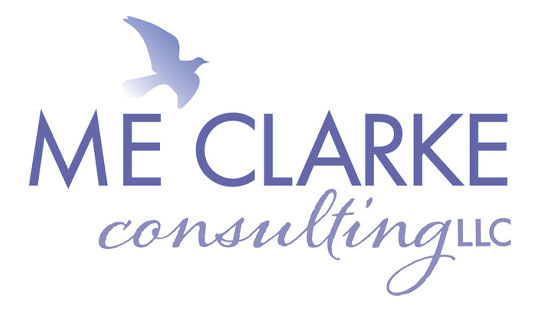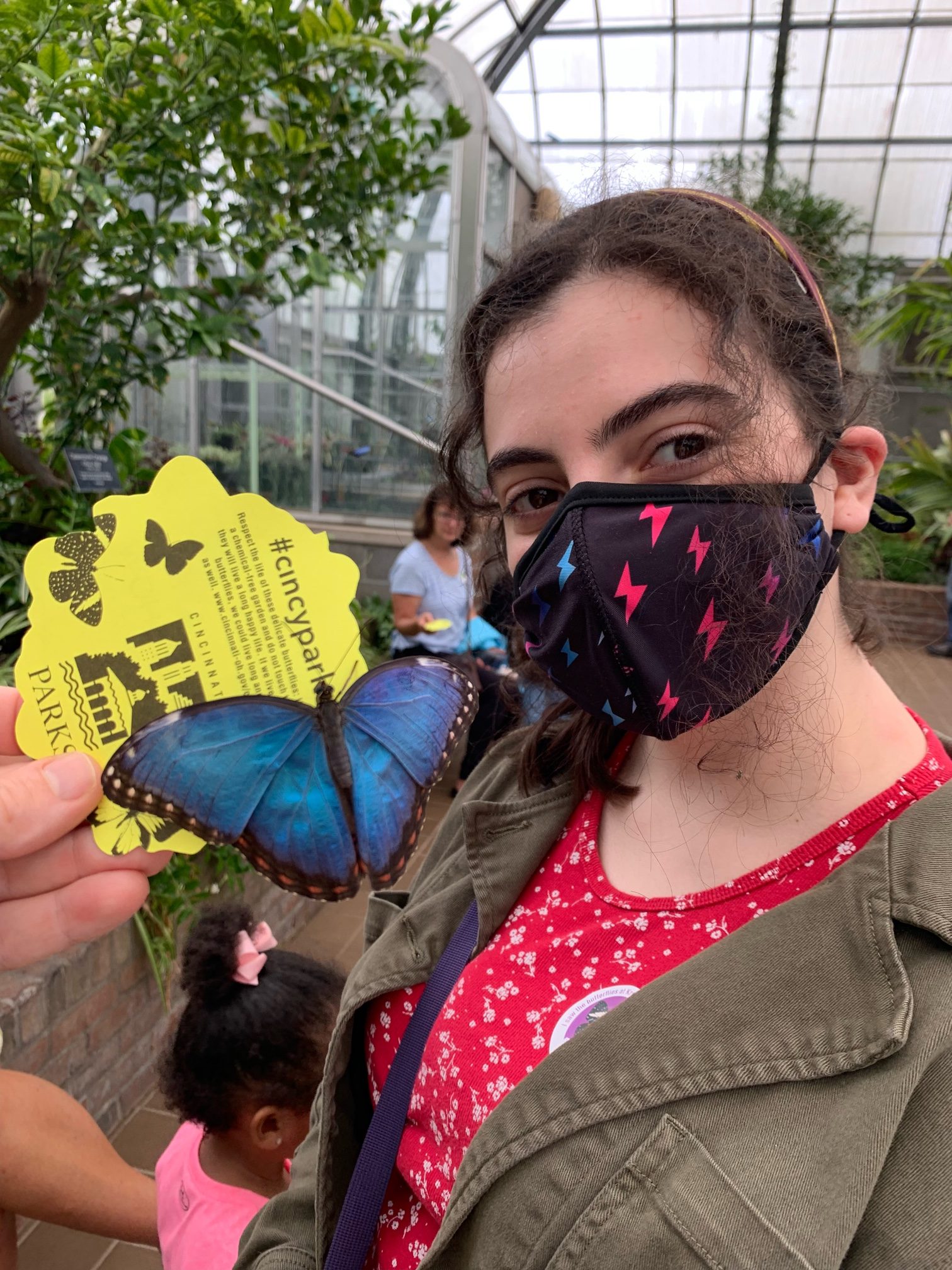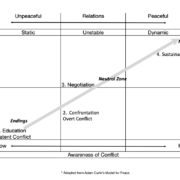Achieving Academic Equity: A Case Study of Just Communities
“Dr. King once said that the arc of the moral universe is long but it bends towards justice. It bends towards justice, but here is the thing: it does not bend on its own. It bends because each of us in our own ways put our hand on that arc and we bend it in the direction of justice….”
– Senator Barack Obama, on April 4, 2008, speaking on the 40th anniversary of the assassination of Dr. Martin Luther King
On March 23, 2010 the Santa Barbara Board of Education voted 4-1 to restructure the GATE (Gifted and Talented Education) program and to create a new rigorous Honors program in order to remove an unfair barrier that disproportionately blocked Latino/a, English Language Learners, and first generation college goers from access to advanced courses and the opportunities such classes provide. This vote culminated years of hard work. In fact when the same proposal was put before the school board in 2005 it was voted down after an outcry from a vocal group of parents who felt that their own children’s education would be compromised if more children had access to higher-level classes. The months leading up to the vote included heated debates between these same parents who fear the change will dilute the rigor of the courses, and a diverse group of educators, students, parents, and community members in support of both equity and excellence in education who say the merger will maintain or even boost that rigor as well as help end a decades-long era of de-facto segregation in Santa Barbara schools.
Why was transforming GATE important?
In the Santa Barbara School District (SBSD), while Latinos make up about half of the nearly 10,000 students attending public junior high schools and high schools, they total just 18 percent of the students in GATE courses. White students account for 44 percent of the total enrollment, and about 70 percent of the GATE population.
During a Just Communities’ program, the Institute for Equity in Education, an administrator stated with passion that GATE is a gate that bars many high achieving students of color from access to the opportunities that come with an education rich with rigorous, advanced courses. This sentiment has been repeated for years by participants in every program Just Communities offers related to equity in education — ranging from GATE students who are disturbed by the lack of diversity in their courses, high achieving students of color who have been denied entrance to GATE classes, students who have gained access only to find themselves isolated as one of the only members of their cultural group, parents of color who are tired of fighting for access to quality educational programs for their children, teachers who are passionate about investing in the potential of all students, but feel their hands are tied by the currently structured GATE program, and administrators who are frustrated by the de-facto segregation that they describe as having two schools within one campus.
To close the academic achievement gap, creating access and support for many more students of color to participate in advanced courses is an essential step. Research shows that ALL students benefit from participation in advanced classes whose students reflect the diversity of the school, including students who are currently GATE-identified. Diverse Honors classes give schools the opportunity not only to increase the level of rigor for more students, but also to strengthen relationships between students of different backgrounds and to create educational experiences that are more relevant and engaging.
Transforming the GATE programs is just one major effort to fix the racial imbalance in the SBSD. Restructuring this program does not sacrifice the education of any student, but instead helps give all students tools to succeed in challenging, diverse, and collaborative environments.
Creating the Foundation for Success
More than three months before the GATE proposal was to be put in front of the school board for a vote, Just Communities was approached by administrators of the school district to help with the Transition.
For more than 9 years Just Communities has been offering equity and inclusion programs to the Santa Barbara School District (SBSD) including but not limited to the Community Leadership Institute (CLI) for students, the Institute for Equity in Education (IEE) for educators, and the Family Dialogue Program for parents.
As an Andrus’ grantee, Just Communities has been applying a Transitions lens to their efforts to dismantle all forms of prejudice, discrimination and oppression for more than seven years. They started out applying the Collaborative Change Approach (CCA) in several of the district’s schools by facilitating a process on defining and creating academic equity. They continued to integrate the Transitions model by including it in staff/board training as well as CLI and IEE curriculum especially as applied to implementation throughout the academic year. All graduates of these institutes receive Transitions training. In addition to offering trainings in inclusion and equity, Just Communities has offered Transitions training to principals and administrators of the district as a leadership development tool as well as an entire staff of a high school as they planned a campus merge. Just Communities trained the participants of the Just Act Program in the Transitions Framework, a training about facilitation and organizing skills for school and community change agents. One Just Act participant noted that one of their most important things they learned was “when I face resistance I need to always acknowledge what’s at stake for others.”
Two years ago, Just Communities made the decision to hire a full time program manager to support, coach and facilitate local schools and districts through their change and transition processes related to dismantling racism and promoting educational equity with a special focus on eliminating the academic achievement gap. With this full time staff member they have been able to be a resource through the SBSD and the community as a whole as experts in Inclusion, Equity and Transitions. Many community organizations in Santa Barbara and throughout the state of California have sought Just Communities to give Transitions trainings over the last several years.
As an established resource and because of years of developing the relational capitol (rapport) with the SBSD, even though they may at times have been on opposite sides of contentious issues, the district approached Just Communities to help them manage their internal as well as communal transition when the opportunity emerged to transform the GATE program in 2010. All of this is to say that Just Communities was well poised to assist the district through the Endings phase in this crucial moment in history.
Just Communities met with administrators on a regular basis to strategize how best to approach this very controversial issue of the GATE program. And as a part of the Latino Achievement Collaborative (LAC), a coalition of local nonprofit organizations dedicated to educational equity and the academic success of Latino/a students in Santa Barbara, Just Communities led the efforts to mobilize community education and media outreach.
Using a Transitions lens, the following was put into place leading up to and following the school boards’ vote.
- Communication: setting up community forums for parents and students to express their concerns and be educated on what was changing and what was not. (Key to managing Endings)
- Addressing the resonance from a failed attempt at transforming the GATE program in 2005.
- Created written materials in English and Spanish on the frequently asked questions and responses for the changes taking place within the Honor program. Just Communities created bilingual materials; unfortunately most district materials were monolingual English and only available on the website and at school board meetings. Just Communities and LAC visited many student and parents groups to give presentations and distribute information.
- Community Mobilization: This was crucial to the Board of Education’s decision to vote in favor of the restructuring. In addition to collating the data, helping to prepare parents, teachers, administrators and students to give personal testimonies, creating press releases from LAC for local media, it was the 30 speakers at three packed school board meetings and countless emails and phone calls to board members and district administrators that made the difference. This is crucial; they won because for the first time the board saw a well organized, diverse, united, and well-informed community that was as numerous or in some cases outnumbered the opposition. One board member, who said that she has been fighting for this change for 25 years, said that it was finally possible because the community was so well organized. *
- Ongoing Support: seeing the vote as a success to be built on and not an end unto itself, after the vote, LAC followed up with administrators offering a myriad of trainings as well ideas for managing the implementation in a way that is inclusive and acknowledging the difficulties that may surface in this first year (as the district shifts from Endings to Neutral Zone). In addition, LAC gave presentations to student and parent groups, did media outreach, and distributed info throughout the community explaining the meaning of the change and outlining how to register for the new Honors Courses (and why such courses are essential on the path to college). A community potluck was held to mark the change and Just Communities facilitated a series of “next steps” meetings of stakeholders.
Still much work to be accomplished: What’s next?
As with any step towards social justice and equity, there are many more steps to come. Transforming the GATE program signaled an important change in policy and structure, but it does not guarantee changes in practice. And, the GATE issue is only one piece of a much larger system where many additional changes are needed to ensure equity and access for all students. Just Communities looks forward to continuing to work with the school district as these changes are implemented. As with managing Endings, Just Communities is well poised to help guide the district through the Neutral Zone of implementation.
Because the proposal represents a significant change, Just Communities is encouraging the board to consider a plan that will support its success, including meaningful opportunities for parents, students, teachers and other stakeholders to participate in the process. They are urging the board to invest in in-depth, long-term professional development programs for teachers who will lead the new Honor’s classes to ensure that they have the skills, tools, and support they need to successfully teach a diverse group of students in respectful and relevant ways. An example of a recent success in this regard, is the Board’s 2010-2011 Focus Goals, includes a goal to monitor and support the Honors Program initiative. This is an example of applying the concept of the 4 P’s and 3 C’s.
The need for change was obvious but no matter how obvious, restructuring a major program is not easy. Ideas for a successful Transition include educating the school community now about the restructuring. Even though the district has been working hard to meet with counselors and administrators at each school site to prepare to implement the plan it is critical to continue to communicate with students and parents/guardians who are newly eligible to enroll in an Honors course in order to inform them of procedures for changing their course assignment. In order to include all parents/guardians, it is essential that this information be made available in both Spanish and English and via telephone, mailings, and in-person meetings, in addition to posting information online.
Just Communities as part of LAC, has also clearly advised the district to plan for teacher preparation, including professional development that helps prepare Honors teachers for teaching more diverse groups of students. These training opportunities might focus on creating safe, welcoming, and inclusive environments, as well as developing rigorous, culturally relevant curriculum and pedagogy. Also as the plan moves forward into the monitoring and program evaluation stage, Just Communities is urging the District to develop a stakeholder group that is truly representative of the school community, including parents/guardians and students whose identities reflect the diversity of the school.
So as the arc is bent ever so slightly closer toward justice with the District’s decision to transform GATE, Just Communities continues to have its work cut out in helping the district to create and implement a more inclusive and equitable Honors Program. Their comprehensive approach to integrating Transitions has shown that the framework has been useful on multiple levels in sustaining change including inter-organizationally as Just Communities continues to adapt to the needs of its community, as a tool for helping in the efforts to create a more inclusive and equitable school district and as a sought out resource for the Santa Barbara community. This is just one crucial tool in Just Communities efforts’ to create an equitable, inclusive Central Coast.
*Note: The Transitions Framework heavily influenced the way LAC coached the 30 speakers from their network who spoke at School Board meetings in support of the change, i.e. they helped speakers to sell the problem without denigrating the past, to explain the consequences of doing nothing, to respectfully acknowledge the fear of loss that others had, etc. This had a big impact – the speakers were mostly very respectful and well-spoken, while the opposing side was often aggressive and insulting.







Leave a Reply
Want to join the discussion?Feel free to contribute!